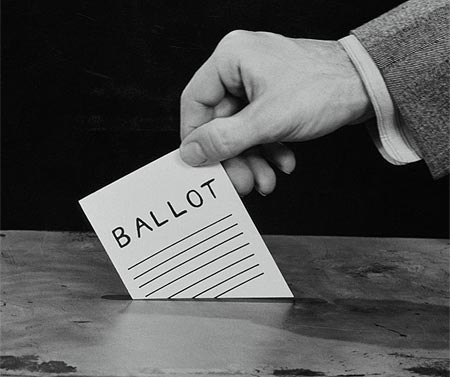Islam and Democracy: Two opposite Poles?

The conventions of the Islamic state evolved from its beginning up to the end of the Ottoman Caliphate. As society became more complex, as knowledge and academic institutions spread, and the age was characterized as being a time of specialization, Muslims came up with systems that were in keeping with these developments. Umar ibn al-Khatab instituted the Diwan, the minting of coins was begun in the beginning of the Umayyad Period, and they began organizing the internal security forces (the police) and the defense forces (the military) separating them from the judicial and the political powers.
Islam is a clear framework that can be applied in every age: the first Muslims were able to apply it in the early days of Islam in spite of the simplicity of their societal structure and the limited number of political offices at the time, and later Muslims were able to apply it in spite of the complexity of their societies and the increased number of political offices.
Islam provided Muslims with political rights, the most apparent of which are the following:
1) Choosing their own leaders and approving them. This was referred in the juridical tradition as pledging allegiance (bay’ah).
2) General participation in those matters that concern the entire community, this is the principle of council (shurah) that Islam encourages.
3) Being appointed to political positions in the government or its agencies.
4) Advising their rulers, commanding them to good, and forbidding them from doing wrong.
Political systems differ in their arrangement of political rights and how they implement them. Islam is concerned with actualizing the purpose of these rights, and it leaves the outward system and its application to be formed in accordance with the needs of each specific time and place.
As for democracy, it is unthinkable that the democracy for which peoples in the West fought so fiercely and struggled so bitterly in order to rid themselves of tyrants and despots could be evil or unbelief. The essence of democracy is the heart of Islam. Islam is in agreement with the principle of choosing one’s own ruler, and the clearest evidence for this is that Islam does not permit someone whom the people despise to lead them in prayer, so it is even more fitting that this be the case in political life.
People came up with forms for democracy, such as elections, the rule of the majority, having multiple political parties, freedom of the press, an independent judiciary, and the right of the minority to form an opposition. All of these forms were invented by the West who preceded us in this regard, but it would have been more fitting for us as Muslims if we had preceded them, for Islam laid down the principles upon which the essence of democracy is based one thousand years before the West.
Islam does not forbid taking a theoretical idea, or a practical solution from non-Muslims. The Prophet got the idea of building a trench around Madina from the Persians, he had the idol-worshipping captives of the battle of Badr teach Muslims how to read and write, he adopted the practice of placing a seal on his letters from worldly kings, and Umar adopted the diwan and the
system of taxation. At the end of the day we need to understand that wisdom is the lost she-camel of the believer, wherever he finds it, he is more deserving of it.
In spite of all of this, we cannot consider council (al-shura) to be an exact copy of democracy. Muslims should not take every aspect of Western democracy and apply it without consideration and awareness. Muslims should accept the truth that they find in the ideas of others while rejecting that which is false. Muslims should not imitate, they should benefit from the experiences of others while weighing them on the scales that God has bestowed upon them, namely the scales of the shari’ah.
Even the proponents of Western democracy agree with us in that the intellectual product of human beings is not divinely protected, but is subject to additions, changes, and refinement. Democracy, as it is understood in the West, needs to be adjusted if we want to make it an Arab-Islamic democracy that would be in accordance with the cultures and traditions of the people who are going to be implementing it, as well as to assure them safety and stability.
The democracy of which Islam approves and to which it calls is a democracy that does not make the fixed aspects of the community, like faith and custom, a point of debate and possible erasure. Just like Western democracy draws a red line that cannot be crossed around the preservation of secularism. Muslims consider Islamic faith and the fixed aspects of the society’s religion and culture a red line and a condition of the democratic process.
As long as democracy does not infringe upon the rights of the population as regards the protection of their identity, faith, and personality, and does not make the fixed aspects of the community open for change and replacement, it is the kind of democracy that serves Islam and actualizes its goals. If, however, democracy is imposed from the outside with the aim of having hegemony over populations and their systems, it is just another aspect of loathsome occupation.
 Arabic
Arabic French
French Deutsch
Deutsch Urdu
Urdu Pashto
Pashto Swahili
Swahili Hausa
Hausa
